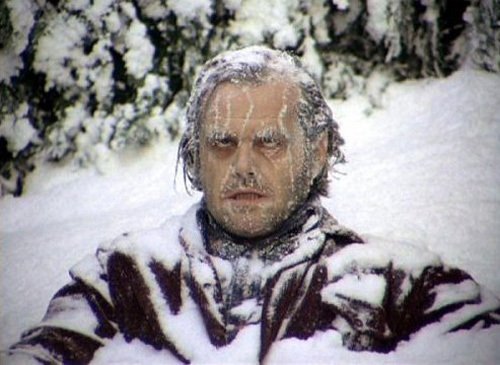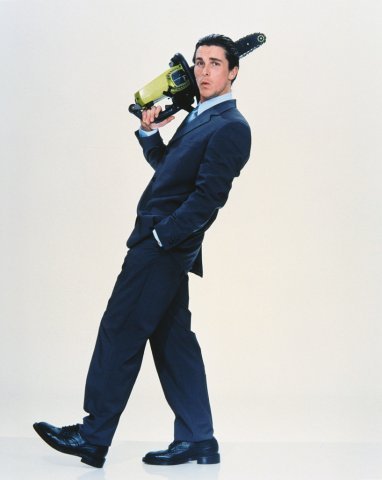Save our souls: how reality shows affect people
Dictate focus groups , diabolical intrigues of TV channels, the dominance of cliches and even lies of educational TV channels - all this fades in comparison with the harm done to modern TV (and viewers) of reality shows.
Here, however, I will not prove the negative impact of viewing “House 2” (everyone already knows this) - it is better to illustrate this thesis with the example of serious scientific works.

')
In the study “Why People Watch Reality TV Shows,” American professors Stephen Reiss and James Wiltz proved that people watch similar programs of the most terrible motives. And the speech here is not about voyeurism at all. Moreover, the desire to pry other people has, in fact, little in common with the real picture of what is happening: in fact, the main thing for viewers of the hypothetical “Behind the Glass” is to reinforce a sense of self-importance and to free themselves for a short time from the shackles of morality. Moreover, such people are much more concerned with their own social status, and they are much more vengeful than others. According to the authors of the study, such people are much more motivated by their own success in observing others' sufferings and simply unpleasant stupid situations.
If you develop this idea, then the average fan of the reality show is ... Patrick Bateman from American Psycho.

Guys, I’ve seen this in “Bad Girls”!
By the way, it’s good that they remembered the murderers: in “The Realities of Real Television: Do Reality Shows on Crime Rates” Leslie Chiu and Mary Lopez, using the example of the Laguna Beach reality show (it was about a disgusting California school shit), showed that shows can really worsen the crime situation. In this resort town of Laguna Beach, crime has fallen throughout the 2000s (as everywhere else in America and in other countries of the first world , by the way), and after starting the show began to grow again (there was more robbery and rape). Perhaps, of course, local declassed elements again developed a sense of contempt for someone else’s property and health, but most likely the fact is that this reality show contributed to creating a negative image of local people in the eyes of many viewers and gave a kind of indulgence to offenses. in this district. Well, like the Bane revolution in Dark Knight Rises. Speaking quite simply - inciting social discord has occurred.

Together we will take the city away from the corrupt! Have the rich! For those who oppressed entire generations and fed us with myths about unprecedented opportunities, and we will return it to you - the people! Now your city! Nobody will hurt you, do what you want. Those in power will be smoked out of their depraved nests. And expelled into this cold and cruel world, let them try to survive. The court will decide their fate. We will share their wealth! Their blood will spill! - Bane revised Laguna Beach
Given all this, it would be extremely naive to assume that reality shows do not have a negative effect on the audience (even random ones). The relevant study examined the effect of one plastic surgery show on the expectations and decisions of the audience in this area. It turned out that 78% of people using the services of plastic surgeons watched this show (and 57% were fans). The problem is that despite the common misconception, the lion's share of the work of plastic surgeons is work to restore the appearance of people who have suffered some kind of injury, and not at all changing the shape of the nose and creating silicone valleys. But this show directly influenced the growth of demand from people to whom the help of a surgeon was not needed at all, but “they showed on TV”. And this is in the United States, where people work for years without holidays and local people generally have a rational type of thinking!
It seems to me that the demand for such programs is dictated not so much by the viewers themselves, but by the leadership of the TV channels. Such things are made to somehow monetize the airtime, not occupied by rating programs (80% of views on TV give evening shows - and in the evening there is an incomparably higher level of production). It turns out that the dominance of stupidity on TV is not a user choice, but simply “ballast”.
Of course, it is easier to launch another slag about the lives ofpolice dogs and hairdressers from Beverly Hills than to give Werner Herzog money for a smart and interesting program. But I am sure - with the growth of material well-being and the level of culture, the average spectator will become much more demanding on the quality of broadcast programs. Users of digital and cable TV already mentioned "House 2" (and its numerous counterparts) do not exactly look, it remains only to "clean out" the space on digital and cable TV. The current technical means (rating systems, links to social networks, creating the “weight” of each program in accordance with the number of views, direct voting) quite allow you to do this.
I attach a small poll to the post.
Here, however, I will not prove the negative impact of viewing “House 2” (everyone already knows this) - it is better to illustrate this thesis with the example of serious scientific works.

')
In the study “Why People Watch Reality TV Shows,” American professors Stephen Reiss and James Wiltz proved that people watch similar programs of the most terrible motives. And the speech here is not about voyeurism at all. Moreover, the desire to pry other people has, in fact, little in common with the real picture of what is happening: in fact, the main thing for viewers of the hypothetical “Behind the Glass” is to reinforce a sense of self-importance and to free themselves for a short time from the shackles of morality. Moreover, such people are much more concerned with their own social status, and they are much more vengeful than others. According to the authors of the study, such people are much more motivated by their own success in observing others' sufferings and simply unpleasant stupid situations.
If you develop this idea, then the average fan of the reality show is ... Patrick Bateman from American Psycho.

Guys, I’ve seen this in “Bad Girls”!
By the way, it’s good that they remembered the murderers: in “The Realities of Real Television: Do Reality Shows on Crime Rates” Leslie Chiu and Mary Lopez, using the example of the Laguna Beach reality show (it was about a disgusting California school shit), showed that shows can really worsen the crime situation. In this resort town of Laguna Beach, crime has fallen throughout the 2000s (as everywhere else in America and in other countries of the first world , by the way), and after starting the show began to grow again (there was more robbery and rape). Perhaps, of course, local declassed elements again developed a sense of contempt for someone else’s property and health, but most likely the fact is that this reality show contributed to creating a negative image of local people in the eyes of many viewers and gave a kind of indulgence to offenses. in this district. Well, like the Bane revolution in Dark Knight Rises. Speaking quite simply - inciting social discord has occurred.

Together we will take the city away from the corrupt! Have the rich! For those who oppressed entire generations and fed us with myths about unprecedented opportunities, and we will return it to you - the people! Now your city! Nobody will hurt you, do what you want. Those in power will be smoked out of their depraved nests. And expelled into this cold and cruel world, let them try to survive. The court will decide their fate. We will share their wealth! Their blood will spill! - Bane revised Laguna Beach
Given all this, it would be extremely naive to assume that reality shows do not have a negative effect on the audience (even random ones). The relevant study examined the effect of one plastic surgery show on the expectations and decisions of the audience in this area. It turned out that 78% of people using the services of plastic surgeons watched this show (and 57% were fans). The problem is that despite the common misconception, the lion's share of the work of plastic surgeons is work to restore the appearance of people who have suffered some kind of injury, and not at all changing the shape of the nose and creating silicone valleys. But this show directly influenced the growth of demand from people to whom the help of a surgeon was not needed at all, but “they showed on TV”. And this is in the United States, where people work for years without holidays and local people generally have a rational type of thinking!
It seems to me that the demand for such programs is dictated not so much by the viewers themselves, but by the leadership of the TV channels. Such things are made to somehow monetize the airtime, not occupied by rating programs (80% of views on TV give evening shows - and in the evening there is an incomparably higher level of production). It turns out that the dominance of stupidity on TV is not a user choice, but simply “ballast”.
Of course, it is easier to launch another slag about the lives of
I attach a small poll to the post.
Source: https://habr.com/ru/post/206308/
All Articles